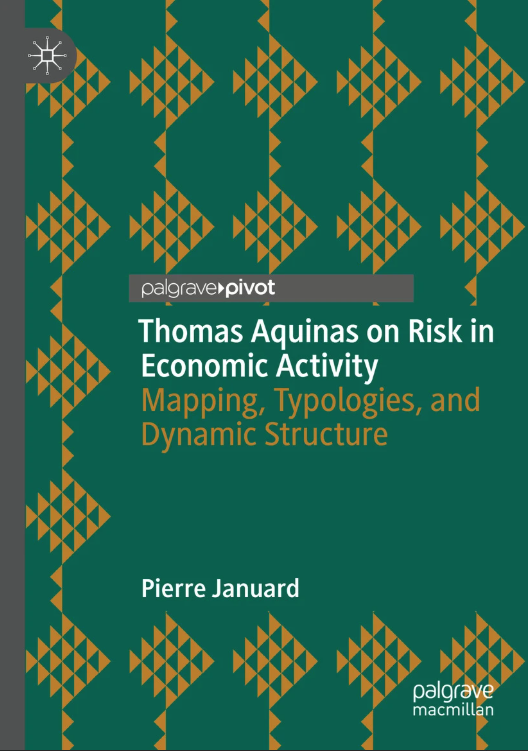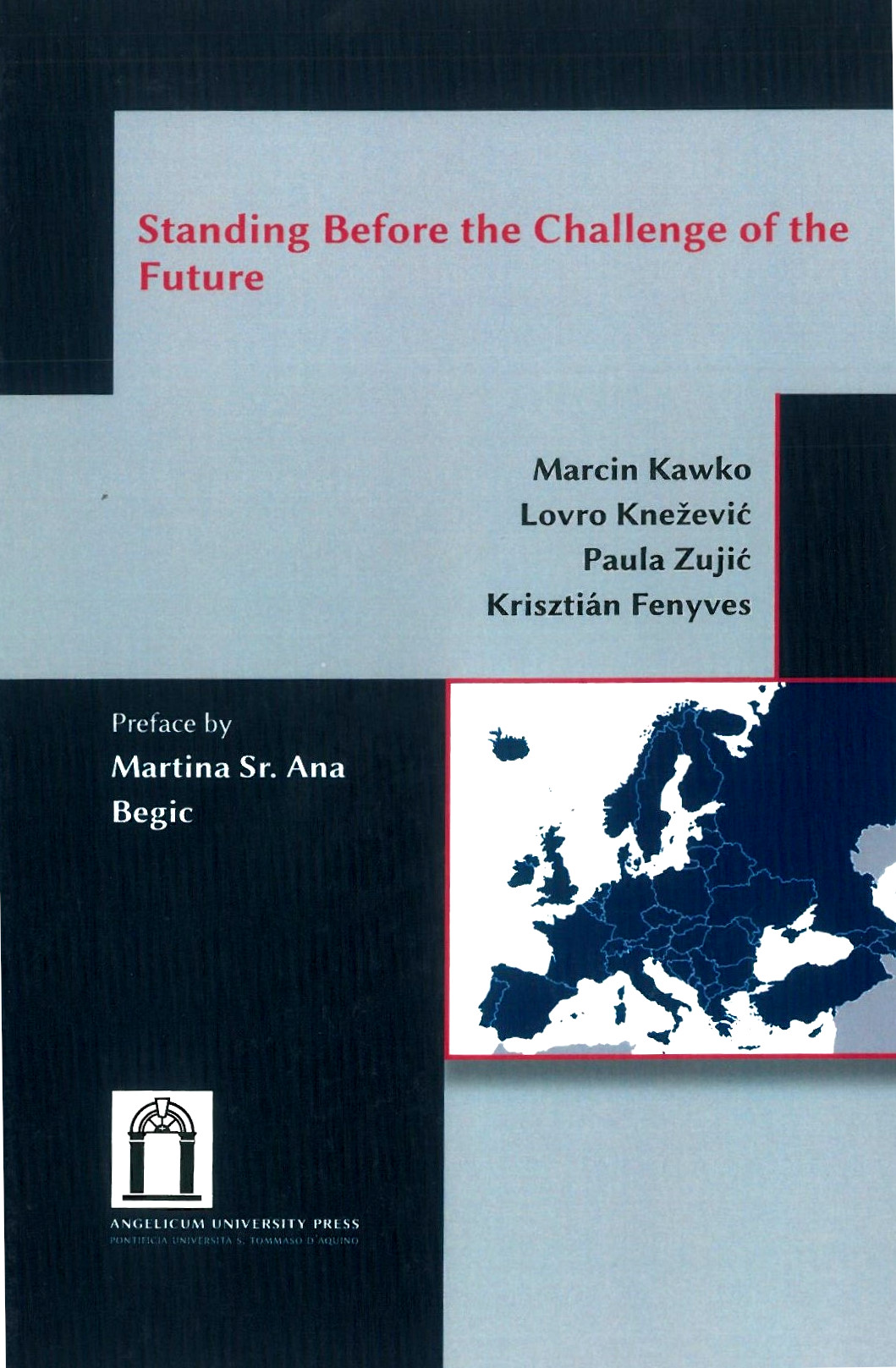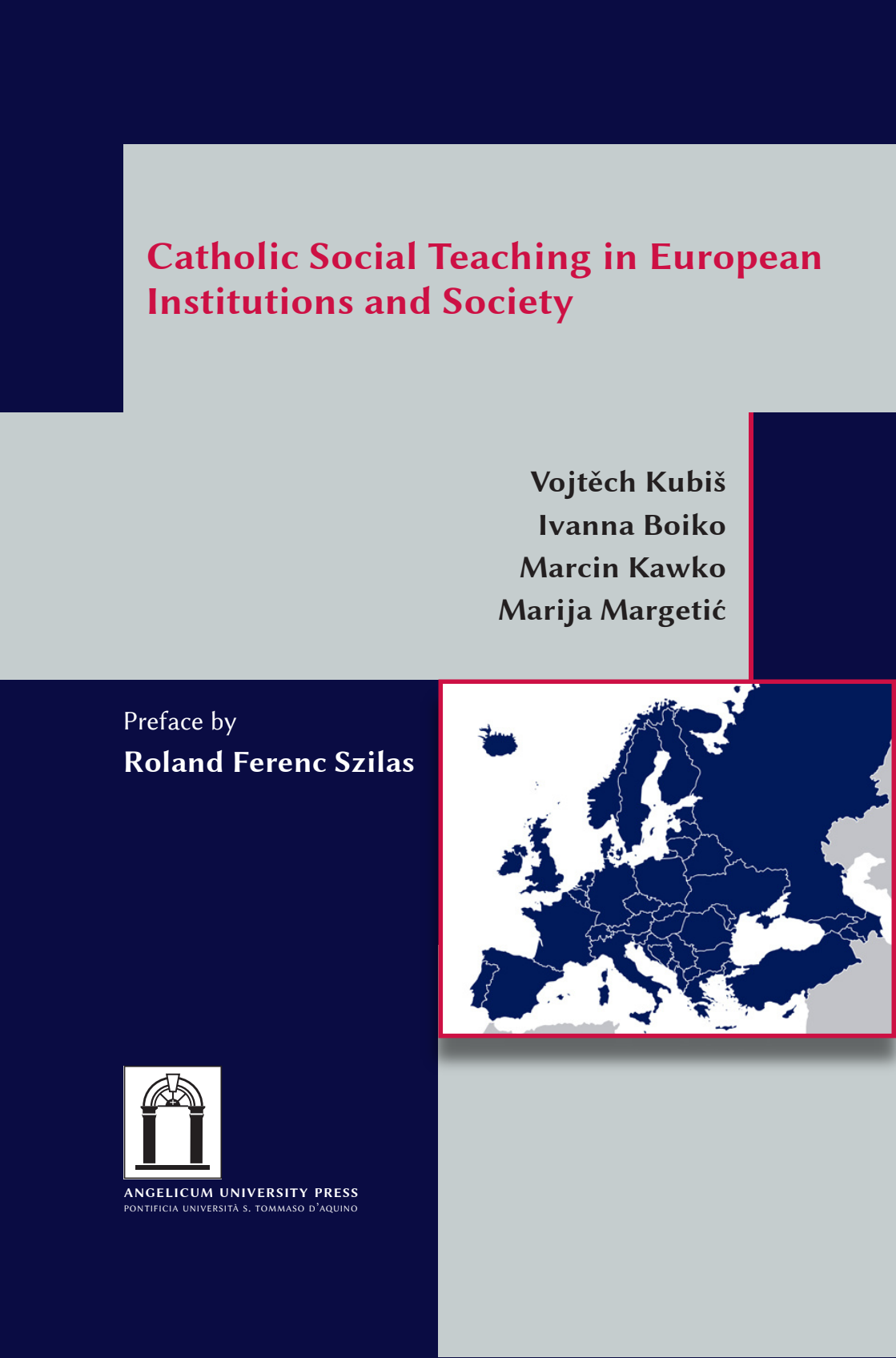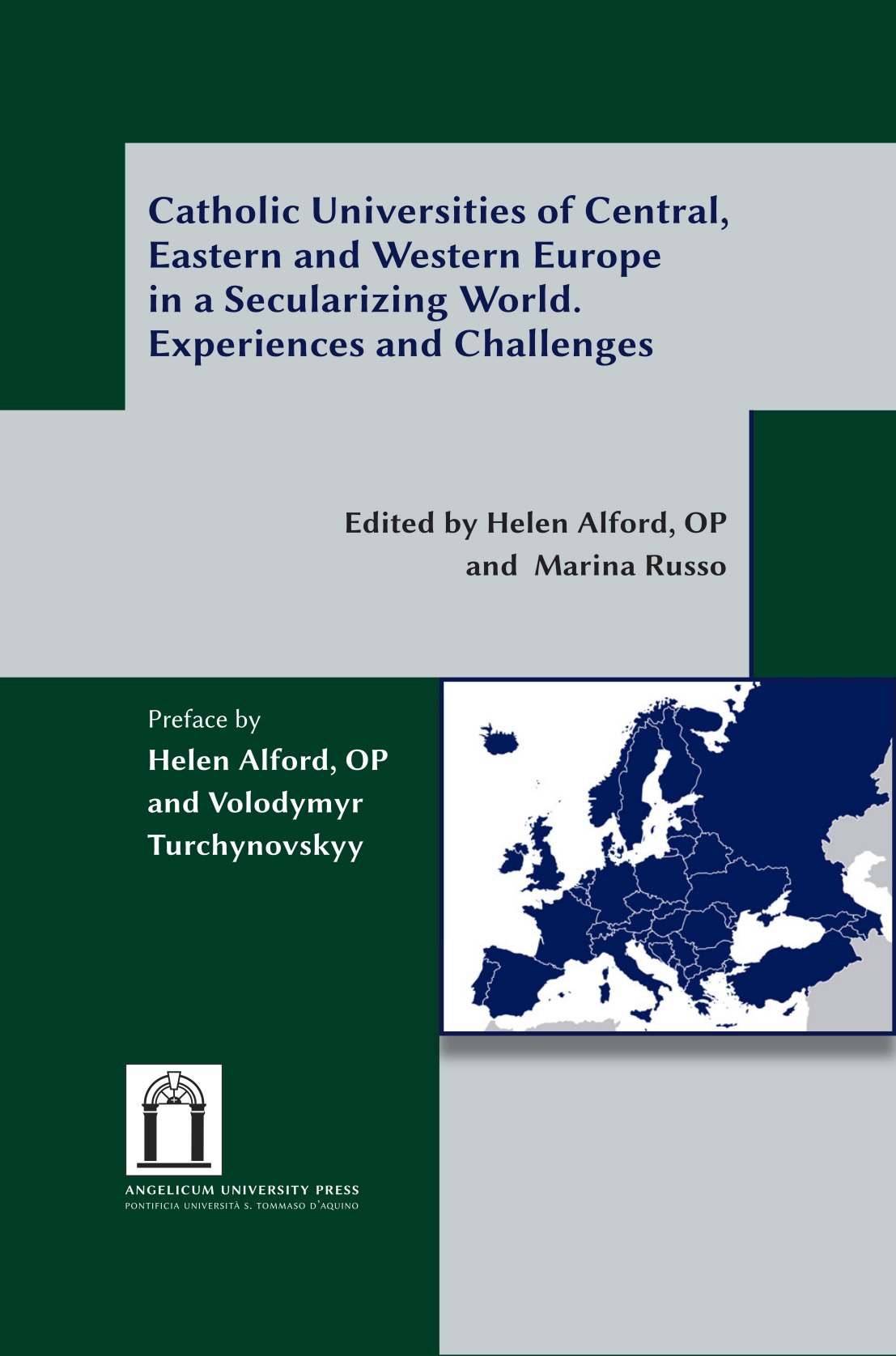Gaudium et Spes was a path - breaking document when it was published forty years ago, so it is not surprising that it still  inspires interest and comment. When a “Call for Papers” went out about a year ago for a conference organised in Rome in March 2005 by a group of universities including ourselves, in collaboration with the Pontifical Council for Justice and Peace, we were amazed to receive five times as many paper proposals as could be presented at the conference itself. Three of the most interesting papers are published here in this number of OIKONOMIA.
inspires interest and comment. When a “Call for Papers” went out about a year ago for a conference organised in Rome in March 2005 by a group of universities including ourselves, in collaboration with the Pontifical Council for Justice and Peace, we were amazed to receive five times as many paper proposals as could be presented at the conference itself. Three of the most interesting papers are published here in this number of OIKONOMIA.
Philippe Bordeyne’s paper on the influence of the Dominican Louis - Joseph Lebret (1897 – 1966) on the document itself is interesting for a number of reasons. Studies such as these bring out the importance of the particular characters involved in the drawing up of an official text, giving the text itself more of a “human face”. Indeed, Lebret himself would have appreciated this since perhaps it is not too much to say that his whole life and work could be summed up as one great effort to “make life more human”. Unsurprisingly, this concern is very clear in his influence on the Council document. From Bordeyne’s text, it emerges that one of his main preoccupations was that the text should emphasise the aspiration of the human person of today to go beyond “having more” towards “being more”. Just as technology and economic growth begin offering unheard-of possibilities for acquiring new wealth, it is at that very moment that human beings begin to see in a new way that these things in themselves cannot satisfy. Only if they can be used towards the higher or intrinsic good of “being more human” can they really be what they are meant to be – useful, and essential in so far as they are useful, but not any more than that. These goods are to a human life what foundations are to a house – without foundations, the house falls, and without enough economic goods, human development is arrested. However, foundations without the house built on them are, literally, useless, and a human life that focuses only on acquiring economic goods is perhaps the one to be pitied most of all. Elsewhere, Lebret argues that the success of communism can be partly explained on the basis of the aspiration to be more human, even if it is misplaced in the form it takes.
For Lebret, the force of love is what will bring about change regarding the great injustices in the world, especially those regarding economic and human underdevelopment. Christians even more than others should be filled with anguish at the sight of the misery of so many human beings, if they love God. Love impels us to inform our minds and to use our intelligence and willpower to act in response to these situations. If this affirmation is true, then perhaps it is the motivation generated by a deep love of others that is lacking in today’s society. We have ever more means at our disposal to resolve the grinding poverty of so many members of the human race, but we do not have the impulse and the sticking power of love to drive us to make use of these means. On the other hand, an “uninformed love” is what we often see in concerned people trying to “do something” to help the poor and excluded. Being unclear about what to do can sometimes mean that their very campaigns can contribute to the exclusion of the poor. It is perhaps the combination of the impulse of love with an informed mind that we lack today.
Making life more human means at the very least having attention both to the good of each person and to the good of all, or what is often called the “common good”. Margaret Atkins aims to take the term “common good”, one of the key ideas of Gaudium et spes, and put it under the microscope. This is a term that is both very important and very loosely used – a recipe for confusion in need of the clarification she aims to give. The analysis considers first how goods can be common, and to whom they are common, and then looks at various types of common good under two main headings: those that are “enjoyed” in common and those that are “produced” or “secured” in common. Also useful and interesting is the way she relates her analysis to that of the economists’ idea of a “public” good, showing that public goods can be a subset of common goods, and that the economists’ analysis of such goods can help those using the term “common good” to be more precise.
As is usual when we are talking about anything other than relatively simple physical facts or relations, thinking about the common good depends to a significant extent on the basic assumptions from which one’s analysis starts. Christian starting assumptions, like the belief in the goodness of creation and that human beings develop in relation with each other, help to support a relatively full and complete idea of the common good, compared, say, to a set of liberal philosophical principles where the starting point and ending point is the individual and the common good could not be more than the sum of the individual goods of all individual members of the group in question. We see here again that often our main disagreements with each other are not over what is the meaning of a term like “common good” but over our basic Weltanschauung, our set of philosophical principles or starting points that lead us to give different content to an idea like that of the common good.
Sheila Hollins asks in her article on “Forgotten People” whether we really think people with intellectual disabilities are fully human? If so, why are their rights and needs so routinely ignored? As she points out in her article: “people with intellectual disabilities are often aware from infancy that their very existence may provoke feelings of rejection and hostility, and even that their families may wish they were dead”. Here we are getting to a very concrete issue brought up in a general way by Lebret: how are our modern societies helping intellectually disabled people to “become more human”? If we are honest, I think it is a question that not many of us ask ourselves, perhaps because it seems to be a “minor” problem. Furthermore, while the issue is fundamentally one of principle, putting those principles into practice in the case of intellectually disabled people requires changes to infrastructure, different kinds of policies and therefore investment in economic and human terms. However, she also provides some hopeful signs from the UK where she is based, in the form of the government policy document “Valuing People”. It turns out that this policy has been developed with the contribution of intellectually disabled people themselves, and that the Minister of Health overseeing its production is a father of an intellectually disabled child.
Similarly, positive stories come from Africa where a religious order has greatly increased the participation of disabled children in their schools. This is especially important since most of the world’s disabled children are in poorer countries. On the other hand “care in the community” initiatives, where disabled people who could have been institutionalised for many years have been placed in more or less “normal” accommodation in local communities has not been all that successful and indeed has more often than not lead to people with intellectual disabilities becoming homeless.
Sheila Hollins makes us think about those we often do not think about, as Lebret made us think about the poor in most of the world and about whom we did not think much before that time. The way the Western cultures deal today with disability could well be compared to the way in which those same countries dealt with underdevelopment in Lebret’s time. The celebration of the fortieth anniversary of a document like Gaudium et spes calls us first to look again at what are the pressing social issues of our time. Then, on the basis of an “informed love”, it calls us to respond to them as Lebret and the Council Fathers did in their day. We often criticise those in the past for not having responded sufficiently well to the issues they had to face – what will people be saying forty years from now about our response?
like Gaudium et spes calls us first to look again at what are the pressing social issues of our time. Then, on the basis of an “informed love”, it calls us to respond to them as Lebret and the Council Fathers did in their day. We often criticise those in the past for not having responded sufficiently well to the issues they had to face – what will people be saying forty years from now about our response?
 IT
IT  EN
EN 
















